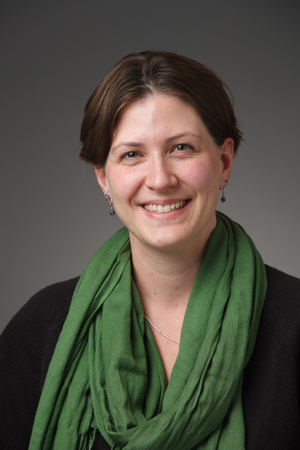Faculty Profile
Sarah Kersh
Associate Professor of English (2014)Contact Information
on sabbatical Spring 2026
East College
717-254-8952
http://sarahkersh.com
Bio
Professor Kersh teaches courses on Victorian literature and culture, queer studies, and digital humanities. Her current research focuses on nineteenth-century sonnet sequences and disability studies.
Education
- B.A., Muhlenberg College, 2003
- M.A., Vanderbilt University, 2006
- Ph.D., 2010
2025-2026 Academic Year
Fall 2025
ENGL 101 LGBTQ Lit. in the US
Cross-listed with WGSS 101-02. This course will explore how sex and gender intersect with other forms of difference- including race and class-in literature by lesbian, gay, bisexual, transgender and queer-identified (LGBTQ) authors, and authors who present LGBTQ characters and themes in their texts. Students will consider the impact of sexuality and gender on literature and experience. Our readings will include a rage of literary genres, such as essay, poetry, novel, drama, and film and we will focus on the interpretation of texts particularly through the lens of queer theory. Authors may include, among others: Gloria Anzaldúa, Tony Kushner, Adrienne Rich, Leslie Feinberg, Dorothy Allison, and Audre Lorde.
WGSS 101 LGBTQ Lit. in the US
Cross-listed with ENGL 101-02. This course will explore how sex and gender intersect with other forms of difference- including race and class-in literature by lesbian, gay, bisexual, transgender and queer-identified (LGBTQ) authors, and authors who present LGBTQ characters and themes in their texts. Students will consider the impact of sexuality and gender on literature and experience. Our readings will include a rage of literary genres, such as essay, poetry, novel, drama, and film and we will focus on the interpretation of texts particularly through the lens of queer theory. Authors may include, among others: Gloria Anzaldúa, Tony Kushner, Adrienne Rich, Leslie Feinberg, Dorothy Allison, and Audre Lorde.
ENGL 220 Intro to Literary Studies
In literary studies, we explore the work texts do in the world. This course examines several texts of different kinds (e.g., novel, poetry, film, comic book, play, etc.) to investigate how literary forms create meanings. It also puts texts in conversation with several of the critical theories and methodologies that shape the discipline of literary study today (e.g., Marxist theory, new historicism, formalism, gender theory, postcolonial theory, ecocriticism, etc.). This course helps students frame interpretive questions and develop their own critical practice. Prerequisite: 101. This course is the prerequisite for 300-level work in English.
